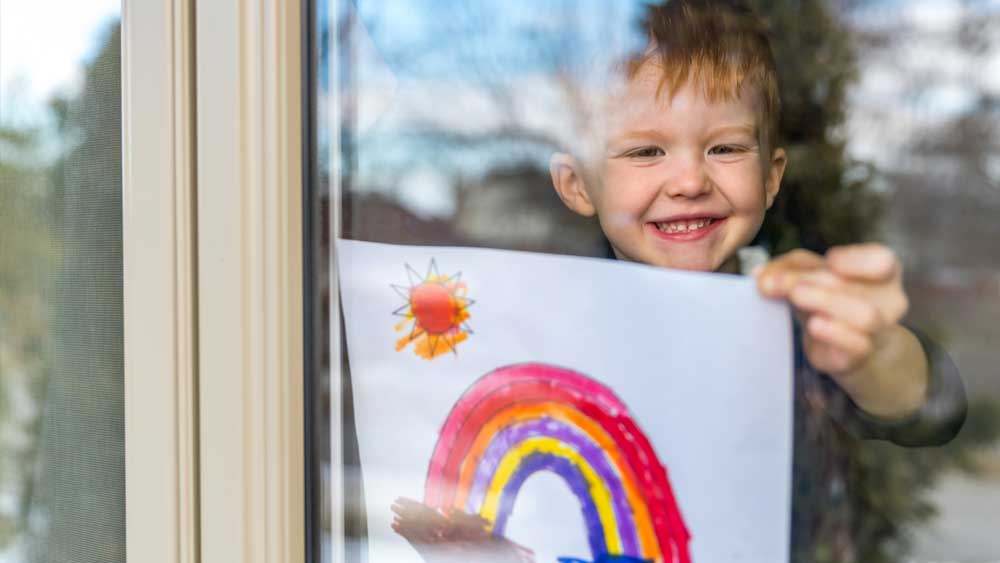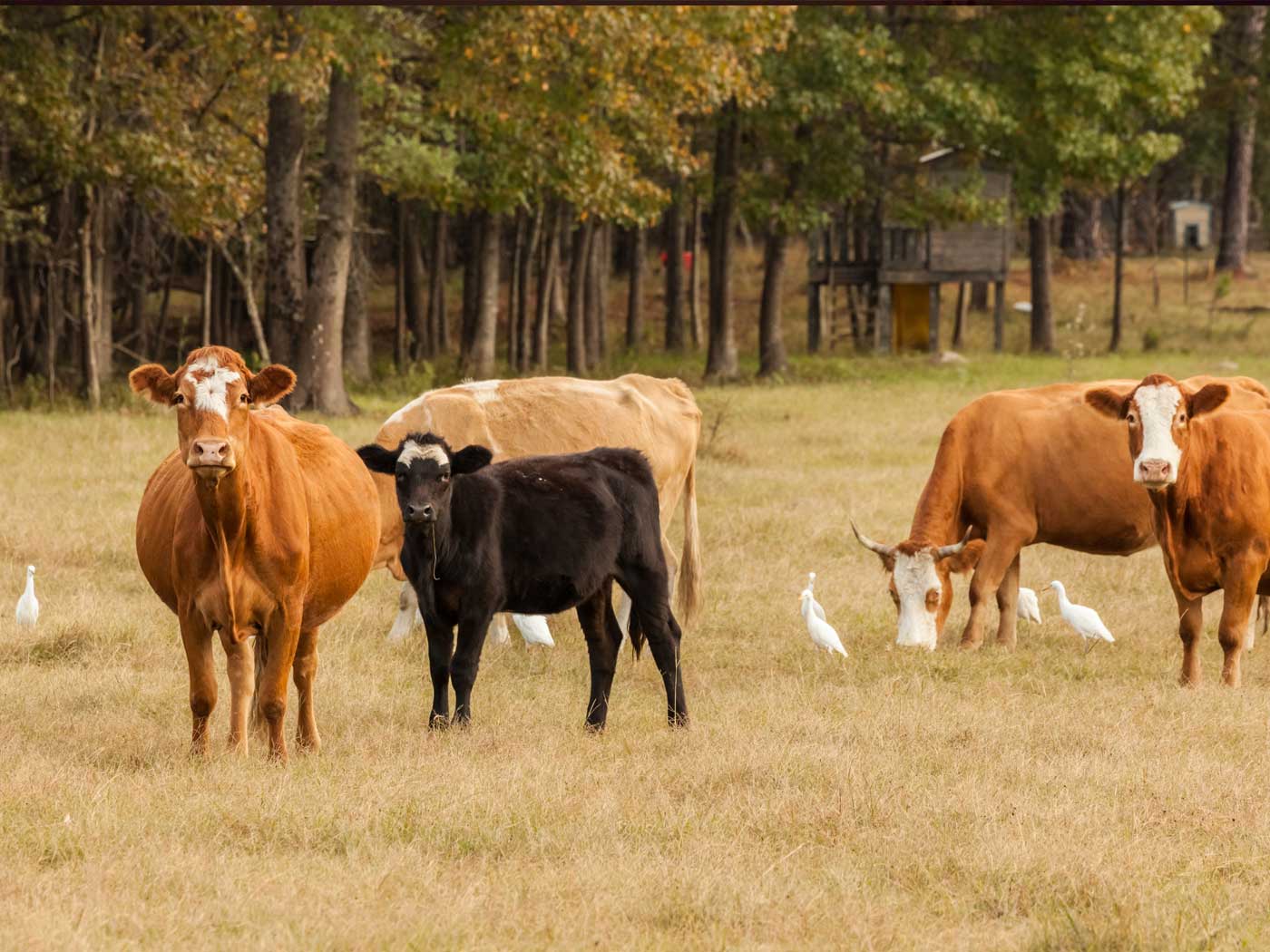Even many self-professed introverts are feeling the strain that comes with this. From the people who are an important part of our lives, to the random strangers we pass during a normal day, we’re used to being surrounded by people. These last few weeks have dramatically changed that reality for us, and that change has affected us more strongly than we expected.
However, this shouldn’t surprise us. God Himself is relational, and He created us in His image.1 We were created first of all to have a relationship with Him, but also to be around people. After all, Jesus told us that the second most important command (after loving God) is to “love your neighbor as yourself.”2 We were created to glorify God by loving those around us.
But how can we do that while we’re stuck at home? Here are just a few ideas of some ways we can stay connected and love our neighbors, while still obeying our government’s social distancing mandates.
Focus on Your Own Home
For some reason, when it comes to loving others, it’s often easier for us to love people outside of our own households. Our families (or roommates, or anyone else we live with) see us more than anyone else. We know the good, the bad, and the ugly about each other. We know how to push each other’s buttons. We aren’t nearly as careful about filtering our words toward each other as we would be toward someone else.
Because of this, most of our people-directed sins are often committed against those within our own walls. This is especially true, unfortunately, during high-stress times like the one we’re in. We get angry; we use biting words; we believe the worst about each other; we lack kindness; we’re thoughtless with our words and actions; we tear each other down; we fail to “stir up love and good works.”3
When was the last time you told each member of your family that you love them? What talent or character trait have you recently praised (out loud) in your spouse, parent, or sibling? How do you respond when someone in your home does something hurtful, or just plain annoying? Do your words, attitudes, and actions make Christ look beautiful to the unsaved members of your family?
Any efforts to love our neighbor must start with those God has placed in our own homes.
Check with Your Church
Many churches are finding creative ways to keep congregations connected, even during a pandemic. Ask your church leadership how you can jump in. Is your church streaming its services online? Is the leadership posting videos, podcasts, or other things during the week? Are various ministries still meeting together via a meeting app or software? Is there a church Facebook group where people post prayer requests and encouraging quotes? For the ministries you were already involved in before all this happened, try calling, texting, or writing letters to the other members of that ministry, organizing a group text/chat, or scheduling a Zoom meeting.
Check in with your local church to find out how they’re working on keeping people connected. Thank them for their work in that, and get involved.
Consider the Needs of Others
All of us tend to focus on our own feelings and needs. It’s healthy to acknowledge those, and to be good stewards of our bodies and minds. However, then we must move past that. As Paul told the believers in Philippi, “Let each of you look out not only for his own interests, but also for the interests of others.”4
Think of people who could use an encouraging word. Perhaps you know someone who…
• Lives alone. Maybe check in to see how they’re doing. Ask them how they’re keeping busy.
• Is considered high-risk for the coronavirus. Perhaps ask if they’ve been able to get the food and other necessities that they need. Or, maybe they’re not very techy and could use your help figuring out how to better use technology during this time.
• Is a parent of young children. Countless parents have abruptly been handed a huge task and could likely use a little extra encouragement.
• Is discouraged. If someone was already dealing with a trial before all of this, it probably did not disappear when COVID-19 took over. It would likely mean a lot if you remember their trial and let them know that you’re still praying for them.
• Is in need. The economy has taken an enormous hit, which is affecting many across our nation. Try to determine (discreetly) if there’s someone you know that is unable to obtain even basic necessities, and perhaps try to personally help where you can and where it’s appropriate. Some churches are organizing large programs to help take care of people in the church and in the community; ask your church how you can get involved, if you’re able.
• Is considered high-risk for the coronavirus. Perhaps ask if they’ve been able to get the food and other necessities that they need. Or, maybe they’re not very techy and could use your help figuring out how to better use technology during this time.
• Is a parent of young children. Countless parents have abruptly been handed a huge task and could likely use a little extra encouragement.
• Is discouraged. If someone was already dealing with a trial before all of this, it probably did not disappear when COVID-19 took over. It would likely mean a lot if you remember their trial and let them know that you’re still praying for them.
• Is in need. The economy has taken an enormous hit, which is affecting many across our nation. Try to determine (discreetly) if there’s someone you know that is unable to obtain even basic necessities, and perhaps try to personally help where you can and where it’s appropriate. Some churches are organizing large programs to help take care of people in the church and in the community; ask your church how you can get involved, if you’re able.
Look to the Lord
Let’s be honest; our current circumstances are disheartening no matter how you look at them. It’s a huge temptation to become discouraged. Even if we continue to do all the right things during this pandemic, even if we stay tightly connected with people, the loneliness in our hearts won’t completely go away.
That’s because too often we forget the relationship that’s supposed to be first in our lives, the only relationship that can truly satisfy us. James says, “Draw near to God and He will draw near to you.”5 Jesus, at the end of His ministry, promised that He is with us always.6
Whenever we find ourselves feeling lonely and isolated, we must remember that nothing— not even social distancing—can separate us from the love of God. After all, He is our “friend who sticks closer than a brother.”7
References
1. Genesis 1:26-27.
2. Matthew 22:39.
3. Hebrews 10:24.
4. Philippians 2:4.
5. James 4:8.
6. Matthew 28:20.
7. Proverbs 18:24.
*Lauren Pennington is Volunteer Coordinator at the ICR Discovery Center for Science & Earth History.























